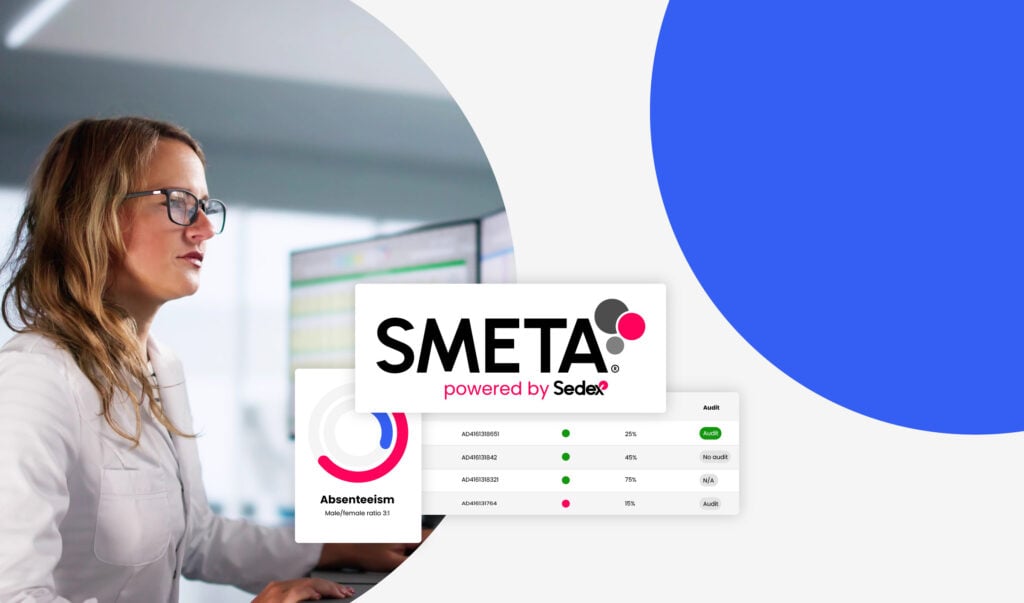Bring Transparency to Your Business with a Supply Chain Audit
Increase Visibility of Your Business with a Supply Chain Audit
The modern business landscape is constantly changing, and companies must remain competitive to succeed. Part of staying competitive is making sure that the supply chain process is transparent and consistent. A supply chain audit allows businesses to evaluate their current practices, identify potential risks, and provide evidence of compliance with regulations and international labour standards. In this article, we discuss the importance of conducting a thorough supply chain audit, as well as the steps needed to develop an effective supply chain audit strategy. By understanding the benefits of auditing and following a strategic plan for improvement, businesses can ensure they are meeting their requirements and maximizing their success.
Understand the benefits of a supply chain audit
Overall, supply chain audits are a powerful tool for companies to use in order to keep their operations running smoothly and remain compliant with industry standards. They provide transparency into the system, enable businesses to track supplier performance, validate data accuracy, and assess ethical standards. Regular auditing is beneficial to ensuring that all stakeholders involved in the process understand their requirements and expectations and work together to reach their goals.
Research auditing requirements and standards
Auditing requirements and standards are essential to ensure the success of a supply chain audit. Companies should be aware of the different types of audits that are available, as well as any applicable laws and regulations that need to be followed. Additionally, businesses should know how to determine the scope of their audit needs based on site size and risk profile, any specialized requirements or areas that require additional auditing, and how to hire an experienced auditor who is familiar with their industry’s audit requirements.
When considering what type of audit is best for your company, it is important to understand the different types available. Depending on the complexity of operations within an organization, there may be several different audits required in order to meet all necessary legal and regulatory requirements. Common types of audits include financial audits, operational audits, compliance audits, environmental audits, ethical sourcing and supplier management audits, quality assurance audits, and data privacy compliance audits. Each type has its own set of guidelines which must be followed in order for a successful audit result.
In addition to understanding the different types of supply chain audits available, companies must also be aware of applicable laws and regulations for their industry. Different countries have varying regulations which can affect an organization’s ability to operate legally within certain markets. It is important for companies to research these laws before conducting an audit so they can make sure they are compliant with all relevant legislation.
A business’ size and risk profile should also determine the scope of a supply chain audit. Smaller organizations may not need as comprehensive an audit as larger ones due to their reduced exposure to potential liabilities or risks associated with international operations. However, larger organizations may require more detailed assessments in order to identify any potential problems or issues that could lead to costly fines or penalties if left unchecked or unaddressed.
Finally, when looking into hiring an experienced auditor for your business’ needs, it is important that you select someone who is knowledgeable about the industry’s specific auditing requirements and standards as well as any laws or regulations related to them. Professional auditors will have experience in conducting various types of supply chain assessments so they can provide accurate feedback regarding any areas where improvements might need to be made in order for your business operations to remain compliant with industry standards.
By researching these auditing requirements and standards prior to conducting an audit, businesses can ensure that they are meeting all necessary expectations from relevant stakeholders while also bringing transparency into their operations through increased visibility across suppliers and customers alike.
Develop an audit plan
Developing an audit plan is a crucial element in guaranteeing the success of a supply chain audit. Companies must first identify the range of activities to be audited and assess any relevant laws, regulations, or internal standards that may affect operations. A timeline and budget should then be established for completing the audit, listing all resources required such as personnel and equipment, along with suitable training if necessary. Goals and objectives should also be defined at this point to measure post-audit results against them. Clear communication channels between stakeholders must be set up throughout the entire process so everyone can remain informed about progress being made towards meeting these goals/objectives. By following this process carefully, companies will not only make sure their compliance with industry standards but also provide transparency within their organization.
Conduct your audit
Conducting a thorough supply chain audit is essential for businesses to stay compliant with industry standards. To provide the transparency of these audits, it is important to select an experienced and certified auditor or auditing firm. It is also vital that companies verify their credentials before hiring them, so as to guarantee they are reliable and competent.
Auditors may help with data collection from suppliers which must be completed prior to beginning the audit process. All parties involved should understand what the purpose and scope of the audit is; this includes what will be audited, by whom, and when it will take place. The audit usually consists of inspecting facilities, reviewing documents such as contracts and invoices, plus interviewing stakeholders for compliance purposes. Each step needs to be done correctly in order to have accurate outcomes.
Once all findings have been collected from the supplier representatives, they should be reviewed before closing out the audit in order to detect any areas that may need improvement or additional resources for compliance with standards or expectations set forth by stakeholders. After this review is finished, corrective action plans can then be documented appropriately, allowing suppliers to meet those requirements. By following these steps during a supply chain audit businesses can keep operations transparent while satisfying industry regulations.
Analyse data and develop strategies for improvement
Analysing data from a supply chain audit is essential to develop strategies for improvement. By measuring performance metrics and identifying weak spots, businesses can gain valuable insights into the efficacy of their operations and how they can improve.
To contextualise the results of an audit, it’s important to analyse data from supplier audits as well as from other sources such as customer feedback, supplier assessment questionnaires and global data sources. Helping you identify any areas that need improvement to meet your requirements and expectations. Additionally, evaluating current procedures and processes can reveal any discrepancies that may exist between what is expected and what is being done.
Once an analysis is complete, businesses should establish corrective action plans to address any issues that have been identified. If employees need more training or resources, set goals for suppliers, institute new processes or procedures, and collaborate to ensure compliance with regulations or standards. The goal is to make sure that all stakeholders are meeting their obligations while maintaining transparency and efficiency within the organization.
Developing strategies based on data gathered from a supply chain audit can help businesses remain competitive in their industry while ensuring compliance with industry standards. By analysing data collected during the audit process, companies can gain valuable insights into their operations which will allow them to make informed decisions about how best to improve upon existing processes and procedures.
Introducing Sedex for Comprehensive Social Supply Chain Audits
Sedex can simplify your path to comprehensive, transparent supply chain processes, crucial for business competitiveness. Our Sedex Members Ethical Trade Audit (SMETA) evaluates your adherence to global standards, like labour rights, environment, health & safety, and business ethics.
SMETA ensures accurate, insightful data on supply chain integrity, helping identify potential risks and ensure the health of your operations. With Sedex, not only you ensure compliance but are part of a community dedicated to ethical and responsible business practices. Let us help you elevate the visibility of your business with a comprehensive social supply chain audit.



